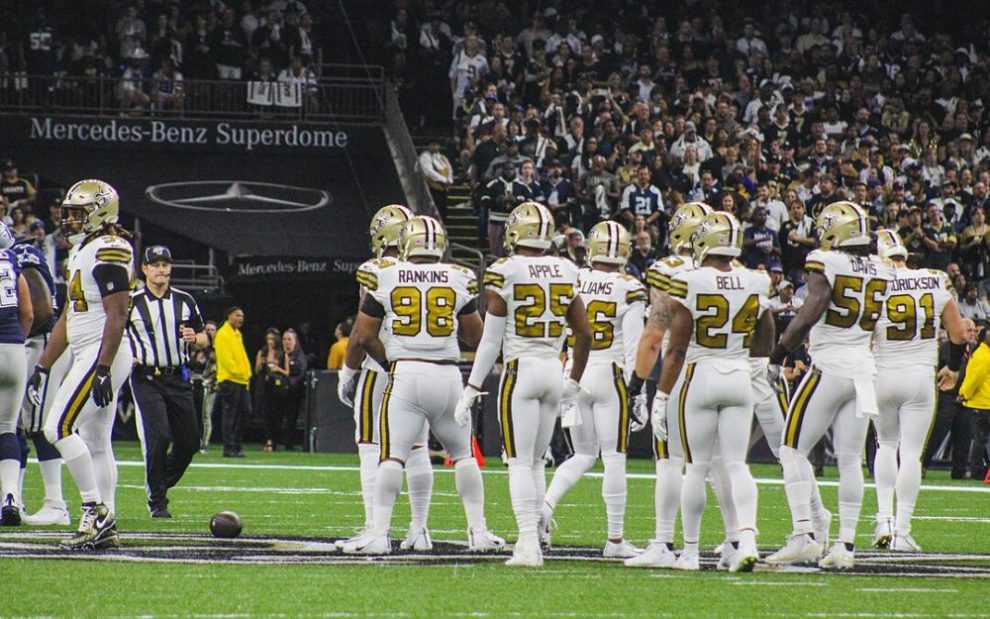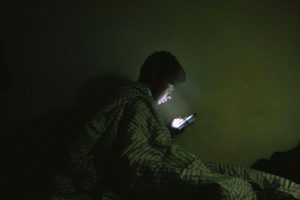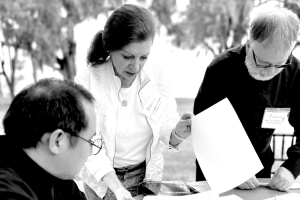This past week, a report revealed that the New Orleans Saints had aided the Archdiocese of New Orleans in damage control and cover-ups following the 2018 release of the names of 50 priests credibly accused of sexual abuse. The Saints initially denied their involvement and went to court in 2020 to try to prevent the leak of their emails with the archdiocese. Those emails, now released, reveal that the Saints’ officials organized and orchestrated a “crisis-communication blitz” in support of the Catholic Church and the archbishop.
The reporting, led by Jim Mustian of the Associated Press, reveals that New Orleans Saints “team executives played a more extensive role than previously known in a public relations campaign to mitigate fallout from the clergy sexual abuse crisis.” This extensive role mentioned in the report includes allegations that the NFL franchise used its power to edit clergy names off of lists, provide media assistance for church leaders, and encourage local media to “work with” the church.
Reading this report, I immediately thought of a scene from the Peter Landesman film, Concussion. “The NFL owns a day of the week. The same day the church used to own. Now it’s theirs.” While the subject matter of that film differs from the recent report, Concussion was the story of Dr. Bennet Omalu’s battle to reveal the truth regarding CTE and football, the sentiment and sad reality ring true. The NFL is larger than anything we, layfolks, can understand.
As we sit with this disturbing revelation about an NFL franchise using its power to protect priests, control a narrative, and shift attention away from victims, we can often feel helpless. Helpless in regards to how we can respond to such abuse within massive institutions. Institutions in which we participate in and support in various ways. Some could argue that we should just ignore it; others say it’s immoral to have any involvement with such institutions after they continue to act in such ways throughout history. Realistically, the Catholic Church and the NFL are not going anywhere. So how should we respond? As football fans? As parishioners? How should we respond when we learn about abuses within vast networks that are too big to go away and that we might not want to go away?
Bear in mind that I say this all from the perspective of a practicing Catholic and an avid NFL fan. I have been a die-hard New York Giants fan for as long as I can remember. Watching the Giants win two super bowls (2007 and 2011) with my dad were some of the greatest memories of my life. But at this point of the game, knowing the NFL’s Saints helped the church hide abuse, I know that I need to ask myself those big questions regarding my response to such abuse.
I believe it is essential that we take abuse crises seriously, especially when they happen within organizations we support or with which we are involved. An ethical response demands that we build relationships and listen to the stories of survivors. What the New Orleans Saints and the Catholic Church of New Orleans have done is nothing new in the big picture of power in America. This moment stands as another horrible truth that Catholics must reconcile with as we live with the sins of the institutional church. The answer to these sins and the work of reconciliation that we all must do, if we are to stand here as Catholics, is listen to the cries of the victims. We must sit down and receive the truth. We must not adjust history so we can “take certain people off” the list of suspected abusers, an action that is being reported. We must not create deals with local media groups to soften the blow of the news spin cycle.
Of course, I understand that most of us have no say in these big, backroom meetings and that I am likely preaching to an exhausted and sad choir. Nevertheless, we still have work to do because at the end of the day we are the ones paying for the tickets, jerseys, beers, etc. We do hold power in this conversation, so let’s use our power to create a movement of listening. A friend of mine used to always say that “God gave us two ears and one mouth for a reason.” Poignant and simple advice for a moment such as this.
So here’s an idea for what we can do. If this bothers you like it does me and many others out there then I invite you to sit down at your computer and Google/YouTube search “Catholic Church Survivor Testimonies.” Read and listen to the stories of the survivors: John, who was a teenager when he was repeatedly abused by a popular parish priest. Mike, who was abused as a teenager as well. Marie, who was abused by a hospital chaplain when she was 13 and recovering from a bone infection. Robert, Shaun, and Carolyn, survivors of abuse by priests in Pennsylvania…just to name some. Take in their pain and offer it up as your prayer. Lent is coming next month, so perhaps this can be part of your Lenten journey. Perhaps this can be your practice before Sunday’s big game. Whenever you do it, do it with open ears and a gentle heart.
Then, if you are still hungry for action, go to your social media pages and email lists. Pause from sharing out the latest gossip about Taylor Swift and her NFL watch party. Pause from commenting on the refs’ “rigging” the game pause from all of that, and share out the stories of those who want them to be heard. Share out the stories of victims who are brave enough to speak their truth so as to protect future children from such pain. It hurts to read these stories; as a father, it is brutal for me to read these. But guess what? That pain is nothing compared to those who have lived this and continue to live it.
Then, if you are still inspired and motivated to act, call on your local diocese to make sure they are equipped with resources for victims and families. Every diocese across this country has been impacted by this, and in 2005 the United States Conference of Catholic Bishops approved the publishing of The Charter for the Protection of Children and Young People. This document is vital to all dioceses as “the principles and procedures of the charter have been integrated into church life.” Check in on your local diocese and parish to see what efforts they are taking. Hold them accountable in making sure that this charter is being honored and lived out.
So go forth, watch the games, root for your teams. That’s not going anywhere, and we must accept that. But if we are to claim our faith (and our teams) as important to us, we better not forget that at the core of both the church and the stadium experience is the dear neighbor that joins you for that moment. That dear neighbor who may have been a victim. Pray for the victims, yes, but also lift up their truth and be there for them when it matters most.
Image: Wikimedia Commons/Ctaylor25 (CC BY-SA 4.0)













Add comment